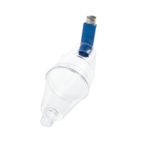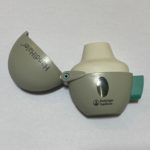People who have severely uncontrolled type 2 diabetes, usually over a relatively short period of time, can lead to a dangerous increase in blood sugar levels (often over 40mmol/l or 600 mg/dl) or over is known as the hyperosmolar hyperglycaemic state (HHS). This is a serious and life-threatening condition that occurs in people with type 2 diabetes who experience very high blood glucose levels. It can develop over several weeks and often affects mostly older people with type 2 diabetes.
Hyperosmolar Hyperglycaemic State (HHS) does not usually lead to the production of ketones in the urine. Therefore, it was previously called hyperglycaemic hyperosmolar non-ketotic coma (HONK).
You are more likely to develop HHS if you don’t take your medicines or if you are ill. Mild illnesses like urinary tract infection or a major event such as a heart attack can cause a dangerous rise in blood glucose because of other hormones the body produces during illness. You should let your doctor know as soon as you become ill because of the risk of HHS.
Symptoms of Hyperosmolar Hyperglycaemic State
Symptoms include dry mouth, dehydration, hunger, feeling very thirsty, abdominal (tummy) pain, confusion, slurred speech, or weakness on one side of the body, decreased consciousness, frequently passing urine, feeling very tired or sleepy and nausea and vomiting, cool hands and feet, fast heart rate, low blood pressure, seizures and coma.
Treatments for Hyperosmolar Hyperglycaemic State (HHS)
HHS is usually treated in hospital.
Treatments include:
- Insulin
- Fluid to rehydrate your body.
- Potassium and phosphate replacement rehydration and other nutrients to replace any you’ve lost.
Prevention of HHS
- Check your blood sugar regularly so you can spot and treat an increase quickly.
- Stick to your treatment plan and make sure you always take your diabetes medication.
- Take extra care when you’re unwell.
- Contact your doctor if your blood glucose levels remain high (>11mmol/l)
- If you can’t eat, replace meals with snacks and drinks, containing carbohydrates.
About the author
Nwasom is a pharmacy graduate and a pharmacist currently practising in the United Kingdom. I have great experience communicating with patients and their family as gained through working as a pharmacist in both the hospital and community pharmacy sector. I love writing so it was a natural thing to try and pass medical and health information on through writing.




